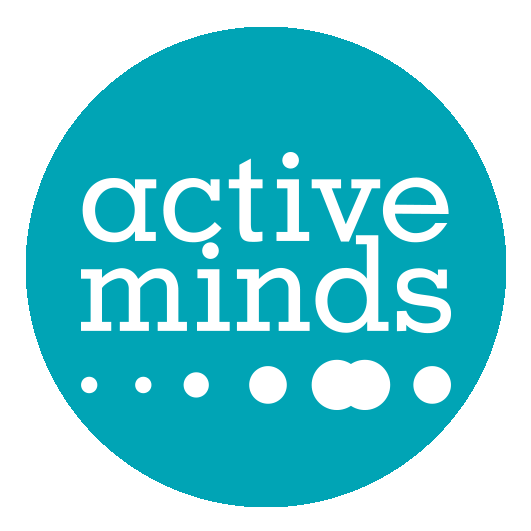About a month ago, I would have had my collegiate senior game. A day that I had been both dreading and anticipating ever since I started playing my sport. It is a day to honor student-athletes that will be playing their last collegiate match, but it is far more than just celebrating their last game. It represents all the years of hard work that go into becoming the athlete who is walking onto the field, as announcers call out your name and accomplishments. Senior day signifies that you have finally made it. It means that it was all worth it. Every conditioning session, every penalty corner repetition, every dollar and minute spent was worth it. You have reached the pinnacle of your athletic career and have attained what was likely a childhood dream.
Unfortunately for many, it can represent much more than simply their time and effort. A number of college athletes have the added component of dealing with mental health concerns, which go unaddressed most of the time. An alarming amount of which experience suicidal ideation or suffer death by suicide, causing them to miss out on their senior game, as well as their lives. The reason for this is as disheartening as it is preventable. Athlete culture has a stigma surrounding mental health. This is likely due to the idea that showing weakness is unacceptable for athletes.
We push through. We dig deep for a second wind. We are resilient. We do not ask for help.
This ideology is what negatively affects college-athletes and causes them to feel alone or helpless. There is always a tension between players, whether it be based on playing time, perceived favorability, or simply the player’s athletic ability. Separate from team dynamics, the mere amount of time spent and the consequent lack of opportunity to take part in other activities, can easily cause a student-athlete to feel like a body on a field.
It is hard not to feel one’s identity reduced from a person with interests and passions to a series of numbers; times, reps, jersey.
To add even more isolation to the struggle of an athlete, many are restricted in regards to outside activities. Social lives, free time and overall well-being are compromised. Amid weight lifting, conditioning, practice, traveling for games, team activities, classes, and study hall, many students feel that they are not getting the most of their time in college. As millennial as this may sound, the “fear of missing out” is a critical factor in one’s health. It also does not help that being an athlete tends to keep athletes in a bubble. When all, or most of your friends are athletes as well, branching out can be difficult. I strived for and cherished any non-athlete friends I could, because they provided a relief from the constant pressure.
That is not to say I did not love my teammates. Some of my teammates became my best friends on and off the field. There is an incomparable bond that comes with the territory; your teammates become your family. Though having said that, I want to shed light on the apprehension that many still have about opening up to other teammates. On my team alone, I knew of at least five other players that had sought out treatment or had considered it. This knowledge had been shared with me in confidence. It was information that I only acquired by speaking up about the need for mental health reform and actively cultivating my relationships. For many of us, myself included, treatment did not fit into our schedule. The designated athletic department psychologist (there was only one for the entire department) had been booked for weeks in advance, and the student counseling services building was a far trek I was not able to justify making.
I was lucky to have coaches that actively tried to promote wellness, both physically and mentally. We took part in weekly mindfulness exercises and did team yoga, but I still believe that stigma is prevalent in athletic culture as a whole, even despite a coach’s outlook. When we glorify the ability to forego one’s feelings, emotionally and physically, it is no wonder athletes do not admit to their peers or coaches that they are not well. One’s admitted health concern becomes a point of scrutiny and weakness, even if it is only brought up out of concern.
After a recent conversation with a former teammate, I was pleased to hear that the coaches, and other members of the department, made a point to discuss mental health concerns with the team. They stated that their doors were always open for any athletes that were struggling with their mental health and wanted to talk about it.
However, as much as this represents a positive stride towards changing the culture, it was still one that does little to address underlying concerns that hold students back from bringing up their personal struggle. Knowing that coaches are willing to talk to you does not eliminate the fear that it will have negative consequences on playing time and one’s relationship with their coaches. The level of comfort discussing such matters may even rely on the closeness or quality of the coach-athlete relationship, a factor that is reciprocally affected by such an interaction.
So what feasible changes can be implemented to improve athlete culture?
- Open discussion regarding mental health should be encouraged. Students do not feel comfortable sharing with coaches for fear of having it negatively affect their playing time. Therefore, this perception needs to be changed. Department-wide shifts need to be made. Students should be encouraged to voice their concerns, perhaps even anonymously, to provide an honest evaluation of the current state of things. The fear of judgement needs to be addressed or completely avoided, by way of anonymity or entrusted members of the department.
- Mental health professionals should be made available to athletes. If speaking directly to a coach is not something a student is comfortable with, athletic departments need to enlist the services of more than a single therapist. It should be just as easy to treat one’s mental health as it should a sprained ankle. Athletic training rooms are filled to the brim with athletic trainers and their assistants. Additionally, every team is designated several athletic trainers that are specific to their team. Yet, there are often far fewer sports-specific therapists on staff. This goes to show which side of wellness takes precedence in the current culture.
- Athletes, as well as athletic department staff, need to be educated on mental health and practice wellness habits, just like any other component of their sport. Athletic departments need to have internal curriculum for their own programming, but also one that is specific to student-athletes. Raising awareness is the first step in prevention and care. It should not be viewed as a superfluous measure, but one of vital importance.
It is no coincidence that in 2013, Chief Medical Officer, Dr. Brian Hainline, declared the top health and safety concern of the NCAA to be mental health. Just as concussions have started coming out of the shadows, and athletes are increasingly aware of the effects, treatment and prevention, mental health needs to follow suit.
The NCAA, backed by 24 different organizations, recently published a set of guidelines, or “best practices,” that are relevant to the mental health of athletes. A suggested practice states that athletes should be regularly evaluated and treated by licensed practitioners. The institutions should establish clearly communicated procedures for referrals, as well as emergency action plans for suicide ideation and psychosis. The guide further suggests that athletic programs should include mental health screenings as a part of yearly physical exams. Lastly, a mental health curriculum should be formulated to educate athletes about self-care, stress management practices, the importance of sleep, peer intervention methods, and how to recognize symptoms of mental health disorders.
These guidelines, exemplary in expression, need to be followed up on, and promoted. Actually implementing these changes outlined by the NCAA should be taken seriously, as student’s lives and well-being are at stake.




